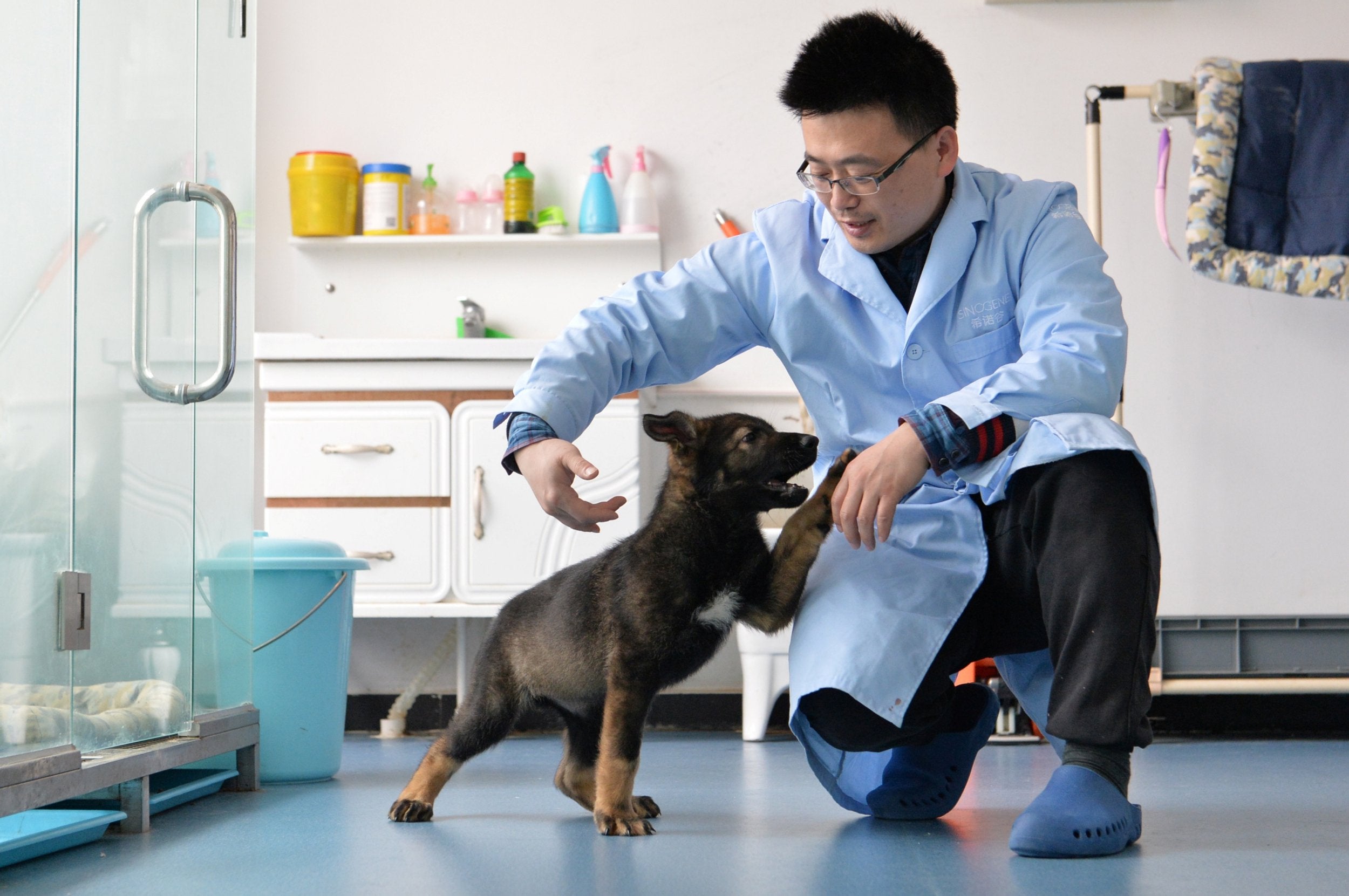Chinese scientists clone 'Sherlock Holmes' of police dogs in bid to cut training times
Three-month-old Kunuxun was cloned from a sniffer dog but cost of process remains obstacle for Beijing-based biotechnology company

Chinese scientists have reportedly cloned what they call the “Sherlock Holmes of police dogs” in a programme they hope will help cut training times and costs for these dogs.
The dog, named Kunxun, was cloned from a police sniffer dog by the Beijing-based Sinogene Biotechnology Company and the Yunnan Agricultural University, with support from the Ministry of Public Security, the state-owned tabloid Global Times reported.
Sinogene is hoping to make it possible to achieve “volume production” of cloned police dogs in order to significantly reduce training times, the company’s deputy general manager Zhao Jianping told the Global Times.
But he added that cloning costs remain a major obstacle for the company.
Kunxun, now three months old, will undergo extensive training in drug detection, crowd control and searching for evidence, and will become a fully fledged police dog when it is about 10 months old, the official China Daily reported.
Training usually takes about five years and costs as much as 500,000 yuan, with no guarantee of success, the paper said, citing an animal expert at the Yunnan Agricultural University.
The paper did not say how much a cloned dog would cost.
South Korean scientists created the world’s first cloned dog in 2005, and two years later the country began employing cloned Labrador retrievers to sniff out drugs for the customs service, China Daily reported.
Reuters
Join our commenting forum
Join thought-provoking conversations, follow other Independent readers and see their replies
Comments
Bookmark popover
Removed from bookmarks